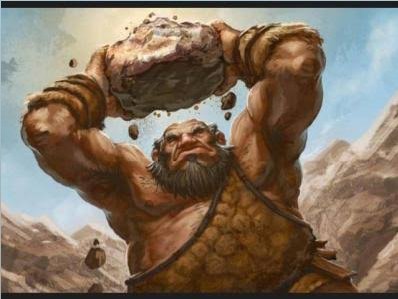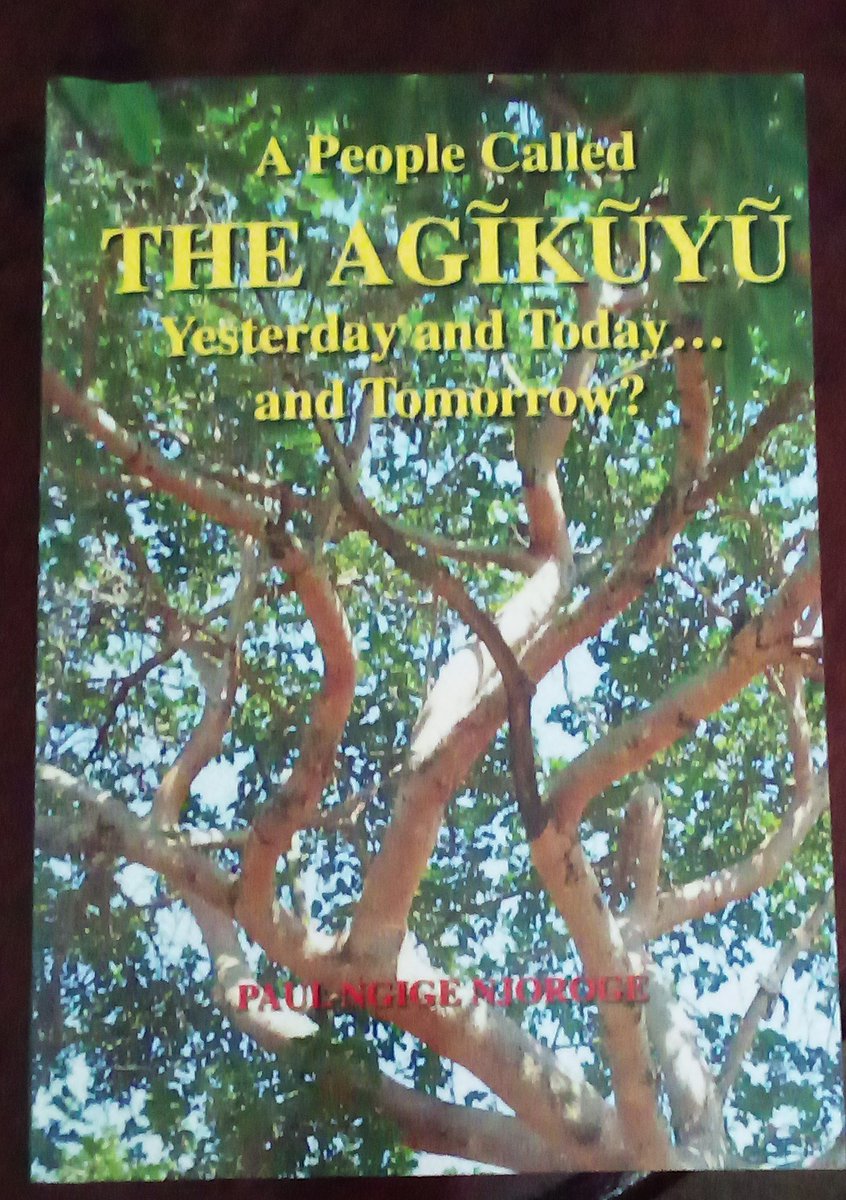
The 12 clans of the MARIMŪ ( GIANTS) in the Agìkūyū community.
In this thread, which was of course laced with a little bit of humor, we highlighted the 12 clans of the MARIMŪ (GIANTS) that long long ago were in the Agìkūyū land.

In this thread, which was of course laced with a little bit of humor, we highlighted the 12 clans of the MARIMŪ (GIANTS) that long long ago were in the Agìkūyū land.


Whereas there is often mention of the Marimū ma Nyakondo, there were about 12 clans of the marimū and each with a king.
First a story..
When Gìkūyū and Mūmbi, had given birth to their four, five, six children, there came into their land humongous humongous people
First a story..
When Gìkūyū and Mūmbi, had given birth to their four, five, six children, there came into their land humongous humongous people
called Marimū ( giants) . By the time Ngai decided to completely wipe out these marimū from this land, Gìkūyū and Mūmbi had given birth to these daughters: Wanjirū, Wambūi, Wanjikū, Waceera, Waithīra na Wangari. Wairimũ another one of their daughters, born later on, was
named so as a reminder to Gìkūyū and Mūmbi of the Marimū once in their land.
Gìkūyū prayed to Ngai to wipe these marimū. For so many reasons. They had supernatural powers, so they could change into whatever they wanted. Some would turn into handsome men who would try to
Gìkūyū prayed to Ngai to wipe these marimū. For so many reasons. They had supernatural powers, so they could change into whatever they wanted. Some would turn into handsome men who would try to
woo the daughters of Gìkūyū while their main intent was to eat them. Others turned into midwives and pretended to be helping women give birth only to end up eating their new born babies. Others stole food. And so on.
Gìkūyū's prayer is answered...
One day, Ngai brought very heavy rain so heavy that through a large number of the Marimū were wiped out. There were however remnants. And it is because of this remnants that Gìkūyū and Mūmbi started something called ( Kuona Itaara)
One day, Ngai brought very heavy rain so heavy that through a large number of the Marimū were wiped out. There were however remnants. And it is because of this remnants that Gìkūyū and Mūmbi started something called ( Kuona Itaara)
where the girls parents visit the boys home before the girl gets married. The daughter born during this heavy downpour, was called Nyambura, to remind Gìkūyū and Mūmbi of this heavy downpour and the many Marimū that were wiped out.
The 12 clans of the Marimū and their kings.
1. Marimū ma nyakondo, Their king was called Nyaigara
2 Marimū ma mīīnago ya icango their king was waicango.
3. Marimū Marī thongo - one eyed giants) their king was called Gīthongo
1. Marimū ma nyakondo, Their king was called Nyaigara
2 Marimū ma mīīnago ya icango their king was waicango.
3. Marimū Marī thongo - one eyed giants) their king was called Gīthongo
4. Marimū mene nduya cia irīti (mītitū) found in forests their king was called Gītuuya
5. Marimū Ngūūi(soloists) their king was Gīkūya
6. Marimū njorua cia thūiywo ( dancers) their kings was Gīthūiya
5. Marimū Ngūūi(soloists) their king was Gīkūya
6. Marimū njorua cia thūiywo ( dancers) their kings was Gīthūiya
7. Marimū ma nduuki cia tīīri; ( they were expert farmers) their king was Gìtukui
8. Marimū MA mūhīrīga wa Nyumbūria na njei cia Ithima ( mostly found along rivers) their king was Gīthuthu
9. Marimū njorua cia gwītheca gīca; (the smartly dressed ones) their king was Kīgema
8. Marimū MA mūhīrīga wa Nyumbūria na njei cia Ithima ( mostly found along rivers) their king was Gīthuthu
9. Marimū njorua cia gwītheca gīca; (the smartly dressed ones) their king was Kīgema
10. Marimū njorwa cia ūrogi, ngeko na nyenyo; ( experts in witchcraft) their king was Kīgeko
11. Marimū ma mūhīrīga wa njorua cia ūkūndū; (experts in mischief) their king was Gìkūūndū
12. Marimū ningi Ciama: ( the wonder workers) their king was Nyaciama
11. Marimū ma mūhīrīga wa njorua cia ūkūndū; (experts in mischief) their king was Gìkūūndū
12. Marimū ningi Ciama: ( the wonder workers) their king was Nyaciama
Original kĩrĩra from Chief Kanyonga wa Mūkono.
• • •
Missing some Tweet in this thread? You can try to
force a refresh












